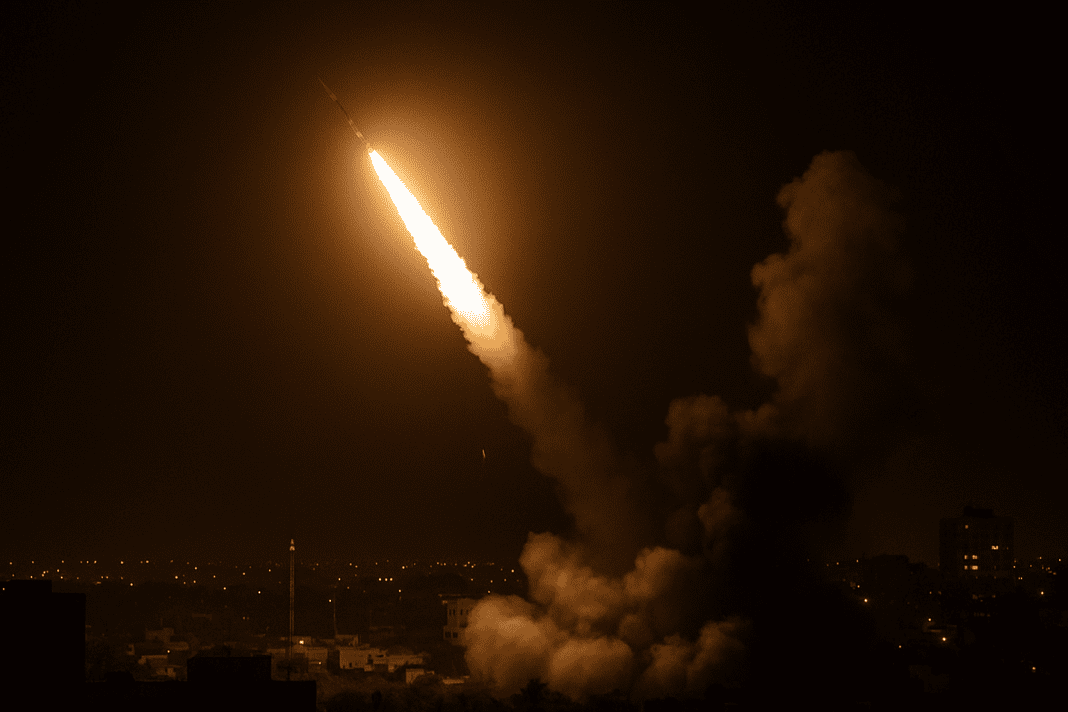A major incident took place this week when Israel carried out air strikes in Doha, the capital of Qatar. A top Israeli official described the attack as a “message to the entire Middle East.” The strikes targeted the headquarters of Hamas’s political leadership in Qatar. At the time, Hamas leaders had gathered to discuss a ceasefire proposal from the United States aimed at reducing violence in the Gaza Strip.
Israel’s Strike in Doha Sends a Strong Warning
The attack escalated tensions in the region. Smoke rose over Doha as missiles struck the area. Qatari authorities strongly condemned the attack and called it a “flagrant violation of all international laws and norms.” This reaction came as the air strikes disrupted ongoing peace talks and raised concerns about worsening violence in the region.
The Israel Defense Forces (IDF) and the Israeli Security Agency carried out the operation. The Israeli government emphasized that Israel made the decision independently and took full responsibility for the attack. Israel described the operation as targeting top Hamas leaders and stated that it acted to confront terrorism.
🔥 Hamas war machine hit hard — mastermind of rocket development Bashar Thabet killed in Israeli raid
Reactions from the Region and the World after Doha Attack
The attack sparked immediate concern both locally and internationally. The U.S. Embassy in Doha issued a shelter-in-place order to its staff and advised all American citizens in the area to stay indoors. The order came amid reports of missile strikes in Doha, signaling fears of further attacks or instability in the region.
Qatari authorities openly criticized the attack and accused Israel of violating international laws. They pointed out that such a strike against a sovereign nation like Qatar is unacceptable and undermines diplomatic efforts. The incident drew sharp reactions from regional players and others following the conflict.
A Hamas spokesperson told a Qatari broadcaster that six people were killed in the attack. Among the casualties was a Qatari security officer. This loss of life highlighted the grave impact the strike had not only on Hamas but also on Qatar itself.
US DOJ Seizes Hamas Crypto in Major Anti-Terror Crackdown
Meanwhile, a former U.S. leader distanced himself from the attack, making it clear that the decision to strike was Israel’s alone. He said that the operation was ordered by the Israeli Prime Minister and not by the United States. He further explained that his administration was informed about the attack only shortly before it happened and that efforts to stop it were too late.
Despite expressing disappointment with the strike, the same U.S. leader acknowledged that Hamas’s actions had contributed to the crisis in Gaza. He mentioned that Hamas benefited from the suffering of people living in Gaza but also reiterated that unilateral strikes against an ally would not help achieve peace.
Israel’s Firm Stand and Regional Impact
The Israeli government, by calling the air strikes a message to the entire Middle East, made it clear that it intends to take strong action against what it calls terrorism. The operation’s bold nature and the decision to act independently show that Israel is willing to risk diplomatic fallout in pursuit of its security objectives.
This message comes at a time when many countries are closely watching the situation in Gaza. The ceasefire talks, aimed at easing the humanitarian crisis and ending hostage situations, were severely disrupted by the attack. Israel’s statement made it clear that it prioritizes its fight against Hamas, even if that means taking steps that some allies might not support.
Qatar’s condemnation of the strike reflects the broader concern over respecting international borders and laws. Many experts and governments around the world are worried that such unilateral actions might further destabilize the region and complicate diplomatic efforts.
Germany Blocks Jet Deal with Turkey Amid Hamas Talks and Democracy Crackdown
The attack’s timing, targeting the political leadership of Hamas at a crucial moment, adds to the sense of urgency and risk. As countries work to de-escalate the crisis, the military operation in Doha highlights how quickly violence can interrupt peace negotiations.
The world continues to monitor the situation closely, as tensions remain high and the possibility of further unrest looms. The incident has also brought attention to the delicate balance between combating terrorism and respecting diplomatic relationships among nations.

